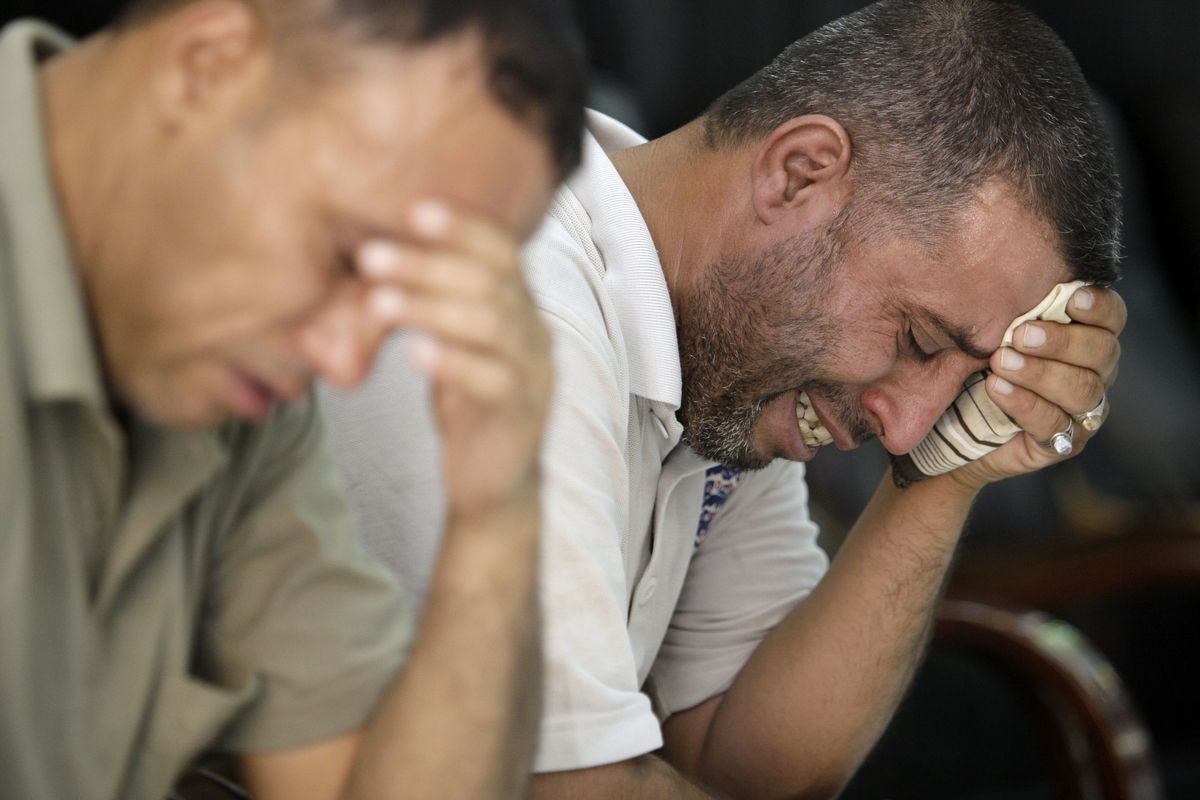Iraqis mourn the death of longtime Shiite leader
Abdul Aziz al-Hakim led party to increased power

BAGHDAD – Abdul Aziz al-Hakim, the head of Iraq’s largest Shiite political party, died Wednesday, creating a leadership vacuum that could weaken the bloc ahead of the January parliamentary election.
Hakim, 59, died in Tehran, where he was being treated for lung cancer, his relatives and associates said.
Leaders of the Islamic Supreme Council of Iraq are expected to announce after Hakim’s burial in Najaf this week that his son Ammar will become the new head of the party, Supreme Council officials said. However, Ammar al-Hakim, who is in his late 30s, is widely seen as too young and inexperienced to command all factions of the party, and could face a leadership challenge.
The younger Hakim has been passed over to lead a newly announced Shiite alliance, officials said. Instead, Supreme Council elder Humam Hamoudi is poised to lead the alliance, which does not include Prime Minister Nouri al-Maliki.
Iraqi officials across the political spectrum expressed sorrow Wednesday over the passing of Abdul Aziz al-Hakim, a central figure in Iraqi politics who in recent years masterfully managed to stay in the good graces of Washington as well as Tehran.
He was one of the architects of the United Iraqi Alliance, the Shiite-led coalition that won the most seats in the December 2005 parliamentary election. He was widely credited with leading Shiites to power after decades of oppression by Saddam Hussein, a Sunni.
“The man was the vital artery of the United Iraqi Alliance and the Iraqi government,” said Muayed al-Hakim, a member of the extended family. “With his death, the arena is empty of a suitable figure to fill the vacuum. He had remarkable negotiating skills and a powerful, imposing personality.”
Khalid al-Nimany, a member of the provincial council in Najaf, the city at the heart of Shiite politics, said Hakim’s death marked a major setback for his party.
“His death came at a crucial moment, as we are slowly approaching the date for general elections and there are a lot of political stirrings, alliances being drawn and coalitions being built,” Nimany said.
Kenneth Katzman, an Iraq expert at the Congressional Research Service, said Hakim’s death leaves the party rudderless at a crucial time.
“Hakim’s passing is likely to set off a major power struggle in ISCI that could lead to its fracture,” he said in an e-mail. “Ammar is viewed by the older ISCI figures as inheriting the position rather than earning it.”
Al-Maliki’s office issued a statement calling Hakim a “big brother and a strong supporter during the struggle against the former regime.”
Hakim’s passing is likely to shape al-Maliki’s thinking as the prime minister decides whether to join the new Shiite alliance or form a coalition with Sunnis and possibly Kurds.